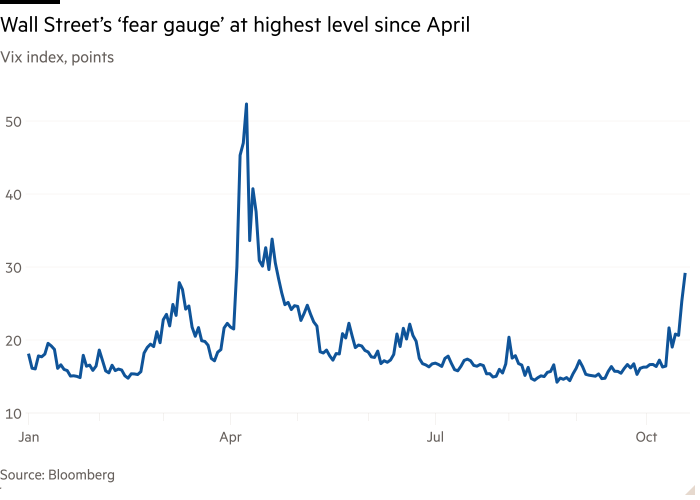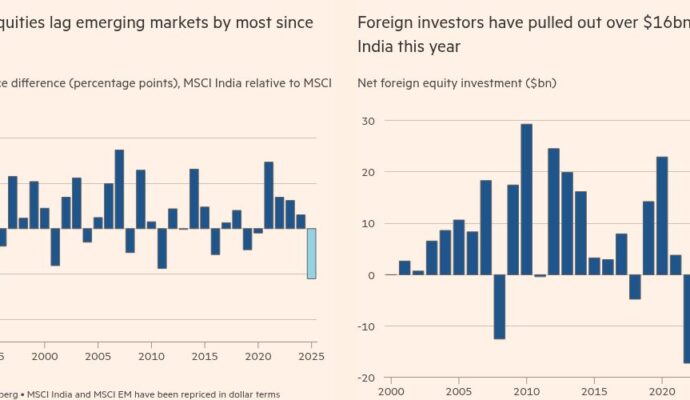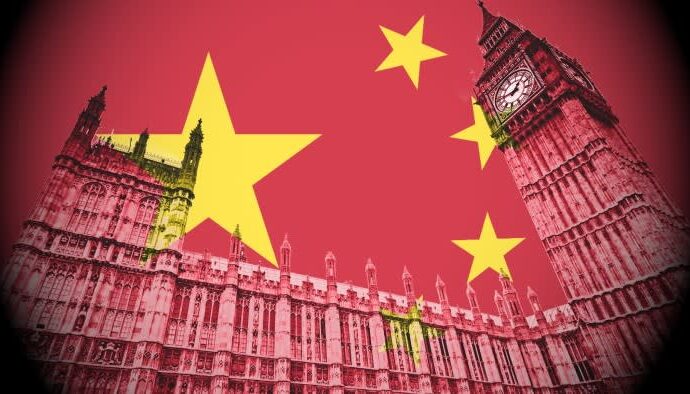Stay informed with free updates
Simply sign up to the Equities myFT Digest — delivered directly to your inbox.
US stocks edged higher in a volatile trading session on Friday, as investors largely shrugged off earlier worries about the health of US regional banks, aided by comments by President Donald Trump.
The S&P 500 was up 0.1 per cent in late-morning trading, following earlier losses for stock futures of as much as 1.5 per cent.
Wall Street’s Vix “fear index” had briefly touched a five-month high of 28.99 points on Friday morning as investors responded to Thursday’s heavy sell-off in US regional bank shares. But it later slipped back to 24.67.
The turnaround was helped by remarks by Trump that suggested that Washington would overcome trade tensions with China.
The US president indicated in an interview with Fox Business that his planned additional tariffs of 100 per cent on Chinese imports might not be in place for long.
Asked whether the tariff would stand, he said: “No, it’s not sustainable, but that’s what the number is” — comments that were initially seized on by the markets.
Trump subsequently said of the elevated tariff: “It could stand but they forced me to do that; I think we are going to do fine with China.”
The KBW regional banking index rebounded 1 per cent on Friday, as earnings reports from several lenders in the sector reassured investors. It had fallen 6 per cent the previous day, after disclosures from two American lenders, Western Alliance Bank and Zions Bank, that they were exposed to alleged fraud by borrowers.
Banks shares led a decline in Europe, although the falls eased as US markets recovered. The Stoxx Europe 600 index fell 1 per cent, with Deutsche Bank down 4.8 per cent and Barclays falling 4 per cent.

Asian markets also fell, with Hong Kong’s Hang Seng index shedding 2.5 per cent and mainland China’s CSI 300 index falling 2.3 per cent.
The disclosures by Western Alliance and Zions added to jitters over the health of credit markets following the failures of auto lender Tricolor and car-parts maker First Brands.
That has led traders to reduce risk amid broader worries of a bubble in artificial intelligence stocks that has powered US markets to a series of record highs.
“When you’re already worried about the AI bubble and the US-China trade wars coming back, you can’t afford to have this kind of newsflow,” said Arun Sai, a senior multi-asset strategist at Pictet Asset Management. “With First Brands, Tricolor, investors are starting to see a pattern.”



